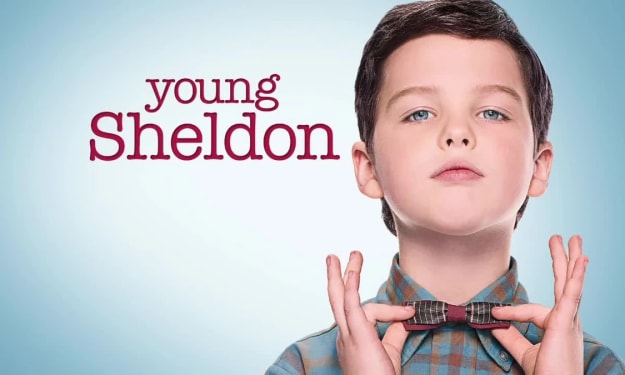Is Love a Choice or a Chemical Reaction? Unraveling the Mysteries of Attraction
relationship

Love, the enigmatic force that has fascinated poets, philosophers, and scientists alike, continues to be a topic of profound intrigue and debate. Is it a conscious decision, a matter of free will, or is it merely a cascade of neurotransmitters and hormones dictating our feelings and actions? Delving into the depths of this complex phenomenon unveils a tapestry of perspectives, blending the realms of psychology, biology, and philosophy in a quest to understand the essence of love.
At its core, love appears to be a multifaceted interplay between conscious choice and biochemical processes within the brain. The romantic notion of love as a choice suggests that individuals have agency in selecting their partners, nurturing relationships, and sustaining affection over time. This perspective underscores the role of intentionality, commitment, and compatibility in fostering deep emotional bonds. From this vantage point, love emerges as a deliberate act, shaped by shared experiences, shared values, and mutual respect.
Conversely, proponents of the chemical reaction theory posit that love is primarily governed by neurochemical signals, such as dopamine, oxytocin, and serotonin, which orchestrate our emotional responses and attachment behaviors. According to this viewpoint, our romantic inclinations and attractions are largely predetermined by genetic predispositions and evolutionary imperatives aimed at maximizing reproductive success. From this lens, love becomes a biological imperative, driven by instinctual urges and subconscious cues.
Yet, the dichotomy between choice and chemistry fails to capture the intricate interplay between these two dimensions of love. Rather than existing as mutually exclusive entities, they are intertwined in a dynamic dance, each influencing and shaping the other in a reciprocal manner. Consider, for instance, the initial spark of attraction—a fleeting moment of infatuation that ignites the flames of passion. While this may be fueled by biochemical reactions triggered by physical proximity and shared interests, it also involves a conscious recognition of compatibility and desirability.
Moreover, the journey from infatuation to enduring love entails a series of choices and commitments that transcend the realm of mere chemistry. Couples navigate challenges, conflicts, and sacrifices, relying on communication, empathy, and compromise to nurture their bond. In doing so, they actively shape the neural circuits underlying attachment and intimacy, reinforcing positive associations and emotional connections.
Furthermore, cultural norms, societal expectations, and personal beliefs exert a profound influence on the dynamics of love, shaping our perceptions of romance, commitment, and fidelity. While some cultures prioritize arranged marriages and familial alliances, others extol the virtues of passionate love and individual autonomy. These cultural variations underscore the malleability of love, highlighting its susceptibility to external influences and social constructs.
In the realm of psychology, theorists have proposed various models to elucidate the complexities of love, ranging from Sternberg's triangular theory of love to Hatfield and Berscheid's passionate versus companionate love distinction. These frameworks elucidate the multifaceted nature of love, encompassing dimensions of intimacy, passion, and commitment, each subject to conscious deliberation and unconscious processes.
From a biological perspective, advancements in neuroimaging techniques have provided unprecedented insights into the neural mechanisms underlying love and attachment. Studies have shown that regions of the brain associated with reward processing, such as the ventral tegmental area and nucleus accumbens, are activated during moments of romantic attraction and attachment. Additionally, the release of oxytocin and vasopressin, often referred to as the "love hormones," modulates social bonding and pair-bonding behaviors in mammals, including humans.
However, reducing love to a mere amalgamation of chemicals overlooks its transcendent qualities—the capacity for empathy, altruism, and selflessness that characterizes profound and enduring relationships. Love extends beyond the confines of neurobiology, encompassing spiritual, philosophical, and existential dimensions that defy empirical measurement.
In conclusion, the age-old question of whether love is a choice or a chemical reaction eludes a definitive answer, as it transcends the confines of reductionist thinking. Love is a paradoxical amalgam of conscious agency and subconscious impulses, shaped by biology, psychology, and culture. It is a journey of self-discovery, vulnerability, and growth—a testament to the boundless complexity of the human experience.
About the Creator
Alexander Mensah
With a blend of expertise, creativity, and dedication, my article promises to captivate and entertain. Backed by thorough research and a passion for storytelling, each word is crafted to inform and engage readers. Join the conversation
Enjoyed the story? Support the Creator.
Subscribe for free to receive all their stories in your feed. You could also pledge your support or give them a one-off tip, letting them know you appreciate their work.






Comments
There are no comments for this story
Be the first to respond and start the conversation.